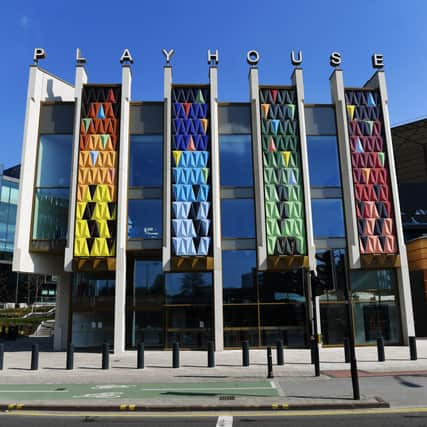Theatre gives us a sense of community - we must hope it has a brighter future


In July, the government announced 1.57bn of funding to the arts sector, which the Chancellor Rishi Sunak described as a “rescue package” due to the financial crisis it faced after forced closures.
Whilst this was welcomed by most, many industry figures believe the UK’s cultural heritage is in grave danger and that theatres reopening at full capacity is paramount to their survival.
Advertisement
Hide AdAdvertisement
Hide AdExpressing his frustration, Baron Andrew Lloyd Webber, leading musical theatre producer, announced that theatres are “at the point of no return” to a House of Commons select committee earlier this month.
For many theatres, the lack of clarity regarding when they can reopen, alongside the delay in access to the “rescue package” has been costly.
Theatre Royal Wakefield released a statement on August 4 which announced its closure until Spring 2021.
They listed the delay in them being informed about how to access emergency funds as one of the reasons behind their closure.
Advertisement
Hide AdAdvertisement
Hide AdLeeds Playhouse received emergency funding from Arts Council England to help them until September, but state that they are “waiting to hear about funding beyond that.”
Theatre companies and practitioners are also struggling to plan for their future.
Katy Dash, Artistic Director for PaddleBoat Theatre Company said:“We’ve had theatres pencil dates in with us, but they’ve then had to collapse their whole autumn season as the guidelines are changing constantly.”
Having not received any guidance from the government directly, companies such as PaddleBoat are having to take their lead from the performance guidelines on the government website.
Advertisement
Hide AdAdvertisement
Hide AdDespite this struggle, practitioners and theatres up and down the country are discovering new, creative ways to deliver their performances.
PaddleBoat work closely with children that have additional needs – one of the most isolated groups during this difficult time.
They plan to develop an online version of their next piece of work, allowing children and families who have to self-isolate to engage with their local community through creativity. They have also been exploring new avenues to return to their audiences by performing in an outdoor space last month and described how the audience clapped and cheered and expressed their support for live theatre. They were able to begin this projec having received a grant from their local council but they now face a nervous wait to find out about future funding.
Leeds Playhouse has begun programming shows for the end of October that suit more restricted numbers and that keep actors, as well as audiences, safe.
Advertisement
Hide AdAdvertisement
Hide AdAs theatre lies at the heart of British culture, providing a sense of community and belonging, as well as a source of employment for so many, one can only hope that the coming months pose a brighter and more certain future for the arts.
Comment Guidelines
National World encourages reader discussion on our stories. User feedback, insights and back-and-forth exchanges add a rich layer of context to reporting. Please review our Community Guidelines before commenting.